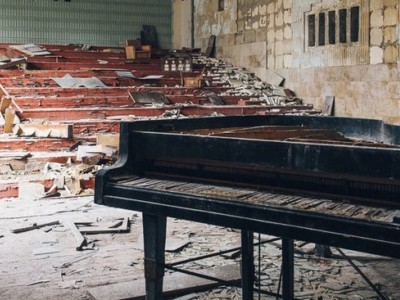Musica geriatrica
|
Dan Albertson [July 2015.] [Here is the latest in an occasional series taking a glance at the dysfunctions of classical music; cf. Of Ephemera, Out with the New or Evolve or Perish. I dedicate this article to Dr. Kyle Mueller, for reasons that he knows well. D.A.]
They are dangerous, but allow me to paint in broad brushstrokes. Here goes: Rock fans and devotees of classical music are two incarnations of the same problem, one of age and nostalgia. Neither one accepts a view of their small world that excludes the core tenets of accessibility and familiarity. I call it musica geriatrica. This fact hit home again over the past weekend. I checked the schedule for Ravinia, where pop has taken over from classical in recent years, and noticed Steely Dan playing concerts on consecutive nights. Each event was sold out. The soloist earlier the same week with the Chicago Symphony Orchestra at Ravinia was Garrick Ohlsson. He was in his prime when Steely Dan was in its prime, if this group ever had one. Ohlsson played Mozart. One could imagine that he has played this concerto hundreds of times. One can be reasonably sure that Steely Dan played Hey nineteen or other silliness, also likely for the thousandth-odd time. See? Two artists, one supposedly serious, and thus above reproach, and one supposedly pop and thus a convenient target for mocking, and each one is hemmed in. Audiences are feeble, if not stupid, and artists are lazy. Agents and artists need to put no thought into programming because concerts program themselves. Sure, some bands keep producing material, but who would shell out big bucks to hear Steely Dan perform music after 1980 or to the Rolling Stones to hear anything that the group recorded in my lifetime? The concert business has become the aural equivalent of core sampling and dendrochronology, the act not of a creative beast but rather of a re-creative machine. Unlike digging into ice or studying tree rings, this exercise yields nil of use for the future. It is a view on nostalgia, pure and simple. The results sadly are self-evident. I fell asleep when perusing season brochures for American orchestras for 2015-16. Lots of Beethoven, Mahler, Mozart, and Tchaikovsky. Asinine attempts at crossover, as if the 1970s had not taught us a salient lesson there. Lots of aged pianists and violinists who should have retired ca. 1987. Lots of the latest cute-and-slightly-talented not yet born in 1987. Itzhak, Joyce, Renée, or Yo-Yo at fundraisers. Very little serious musicianship. Music directors who are usually too busy elsewhere to be conducting at home, sometimes earning as much as $100,000 per weekend of concerts when they are home. Perhaps most offensive of all, high-paid programmers who get rewarded for their lack of thought or imagination, often moving in a merry-go-round from one orchestra to the next. People earn six figures for programming overture-concerto-symphony or dreaming up such strokes of genius as a Tchaikovsky festival? While attacking Steely Dan is culturally acceptable, as jokes about tired old rockers laughing to the bank are in abundance, no one among us has the gall to scorn the Boston Symphony Orchestra, the Chicago Symphony Orchestra, the Cleveland Orchestra, the Los Angeles Philharmonic, the New York Philharmonic, the Philadelphia Orchestra, or the San Francisco Symphony Orchestra for their complicity in this cultural racket. Their members are mostly old and mostly wealthy, too. The sightlines converge. Let me hereby fill the void. I call out these orchestras for their ineptitude. I call them out for pandering, for being complacent and for providing a disservice rather than enrichment to the cultural life of their respective cities. I also call out the audiences for buying into this sideshow. Meanwhile, I stay home and listen to what I wish, when I wish. Musica geriatrica and the whole nostalgia business are not for me. [The photo is from the abandoned music school in Pripyat, Ukraine. It’s in various places on the Internet including http://www.classicfm.com/discover/music/abandoned-concert-halls-pictures/music-school-pripyat/.] [More Dan Albertson]
[Previous Article:
Passion Texts]
[Next Article:
Percussion on mode]
|
